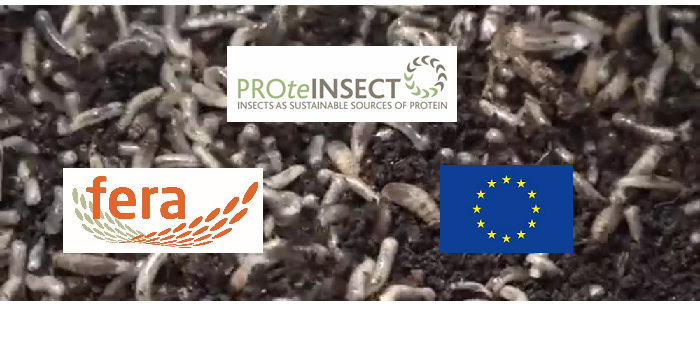The potential for feeding insect protein to chicken, pigs and fish is the focus of a new information film produced by the PROteINSECT project in which insect-based animal feed is presented as a cost-effective, additional and novel protein source.
Funded by the European Commission (EC), the project is centred on work in Europe, Africa and China and involves investigating the use of insects as an additional and novel protein source in animal feed. Although aimed initially at addressing the issue of food sustainability for farmers in Africa, the project is seen as having potential for meat producers worldwide.
“Insect flour offers huge potential as an added, economically-viable, ‘home-grown’ protein source for farmers who have traditionally relied upon fish meal and soy flour,” said PROteINSECT partner, Dr Marc Kenis.
In addition to the Africa/China focus, the search for new and sustainable sources of protein is also on the agenda in Europe, where it is recognised that agriculture’s increased reliance on imported sources of protein needs to be addressed. In that context, the European Food Safety Authority (EFSA) recently published its scientific opinion on the comparative risks of insects as a source of protein for food and feed.
While stating that a lot of further research is needed on the subject, EFSA has recognised that in parts of the world, outside the EU, insect-based feed is an “emerging agricultural practice, which could also pave the way for the adoption of ‘novel feeds’ in European farming”.
An important consideration for African feed producers, however, will be potential restrictions placed on importing meat from animals reared on insect protein into Europe. The film also acknowledges that further safety testing is essential before such meat is widely available for human consumption.
“The new film makes a valuable contribution to the current discussion surrounding insect protein for animal feed,” said, PROteINSECT project co-ordinator Dr Elaine Fitches, of the UK Food & Environment Research Agency (fera).
“It will raise awareness of our work and showcase our African partners’ expertise – potentially to a wider audience than ever before – whilst encouraging and informing debate around the benefits and challenges of using insects to support sustainable farming methods across the world.”




